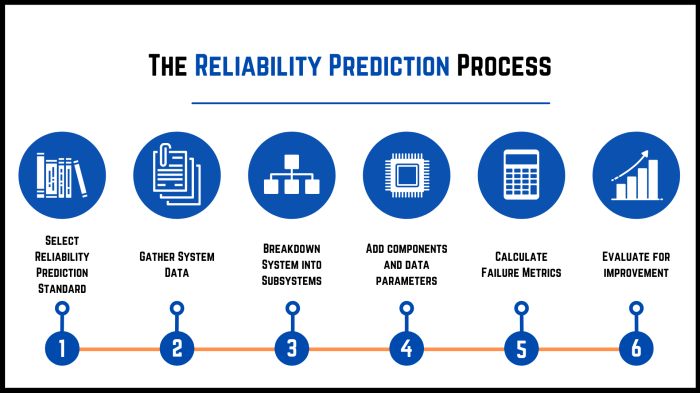
Evaluating cloud storage performance and reliability, this introduction delves into the intricacies of cloud storage systems, shedding light on their importance and impact in modern data management. From understanding the factors affecting performance to strategies for ensuring reliability, this topic is crucial for businesses and individuals relying on cloud storage solutions.
Cloud storage has revolutionized the way data is stored and accessed, offering numerous benefits over traditional storage methods. As the demand for efficient and reliable data management continues to grow, evaluating the performance and reliability of cloud storage systems becomes increasingly vital.
Cloud Storage Overview

Cloud storage is a method of storing data on remote servers accessed through the internet, providing users with the ability to store and access their data from anywhere. In modern data management, cloud storage plays a crucial role in ensuring data availability, scalability, and disaster recovery.
Benefits of Cloud Storage
- Scalability: Cloud storage allows users to easily scale up or down their storage needs without the need for physical hardware upgrades.
- Cost-effective: Users only pay for the storage they use, eliminating the need to invest in expensive on-premises storage solutions.
- Accessibility: Data stored in the cloud can be accessed from any location with an internet connection, promoting collaboration and remote work.
How Cloud Storage Works
Cloud storage works by storing data on multiple servers located in data centers around the world. Users upload their data to the cloud provider’s servers, which replicate and distribute the data to ensure redundancy and data integrity. There are different types of cloud storage options, including public, private, and hybrid clouds, each offering unique features and security levels.
Evaluating Cloud Storage Performance
Factors Affecting Performance
- Network latency: The speed at which data is transferred between the user’s device and the cloud server affects performance.
- Storage architecture: The type of storage system used by the cloud provider can impact performance, such as SSDs for faster access.
- Data encryption: Encrypting data for security purposes can introduce overhead and affect performance.
Measuring Performance Metrics
- Throughput: The amount of data transferred per unit of time measures the speed of data access.
- Latency: The time it takes for a data request to be fulfilled by the cloud storage system.
- Availability: The percentage of time the data is accessible and not experiencing downtime.
Optimizing Performance
- Use of content delivery networks (CDNs) to cache data closer to users for faster access.
- Data deduplication to reduce storage requirements and improve performance.
- Implementing data tiering to prioritize frequently accessed data for faster retrieval.
Reliability of Cloud Storage
Defining Reliability
Reliability in cloud storage refers to the ability of the system to consistently provide access to data without loss or downtime, ensuring data integrity and availability for users.
Importance of Reliability
Reliability is crucial in maintaining business continuity, protecting sensitive data, and ensuring compliance with data regulations. A reliable cloud storage solution ensures that data is safe, secure, and accessible when needed.
Evaluating Reliability
- Service Level Agreements (SLAs) that guarantee uptime and data availability.
- Data replication across multiple geographically dispersed data centers for redundancy.
- Regular backup and disaster recovery plans to mitigate data loss in case of failures.
Performance Testing Methods
Common Testing Methods
- Load testing to simulate multiple users accessing and modifying data concurrently.
- Stress testing to assess the system’s performance under extreme conditions and peak loads.
- Benchmarking against industry standards to compare the performance of different cloud storage providers.
Simulating Real-World Workloads
- Using tools like JMeter or Gatling to simulate user interactions and data access patterns.
- Creating test scenarios that mimic actual usage to evaluate performance in a realistic environment.
- Monitoring system behavior and performance metrics during testing to identify bottlenecks and areas for improvement.
- Redundancy: Implementing redundant storage systems to ensure data availability in case of failures.
- Replication: Copying data across multiple servers or data centers to prevent data loss and improve reliability.
- Backup Strategies: Regularly backing up data to secure locations for disaster recovery and data integrity.
Reliability Assessment Techniques

Assessing Reliability, Evaluating cloud storage performance and reliability
End of Discussion: Evaluating Cloud Storage Performance And Reliability
In conclusion, evaluating cloud storage performance and reliability is essential for maintaining data integrity and accessibility. By understanding the nuances of performance testing and reliability assessment techniques, businesses can make informed decisions when choosing cloud storage providers. Stay informed, stay secure, and embrace the power of cloud storage in today’s digital age.
Question Bank
What are the key factors influencing cloud storage performance?
The key factors include network latency, bandwidth, data transfer speeds, and server load balancing.
How can one measure the reliability of a cloud storage provider?
Reliability can be measured by uptime statistics, data redundancy measures, and disaster recovery plans implemented by the provider.
Why is reliability crucial in cloud storage systems?
Reliability ensures data availability, integrity, and continuous access to stored information, minimizing the risk of data loss.
What are some best practices for optimizing cloud storage performance?
Optimizing performance involves data caching, load balancing, and utilizing scalable storage solutions to meet changing demands.




